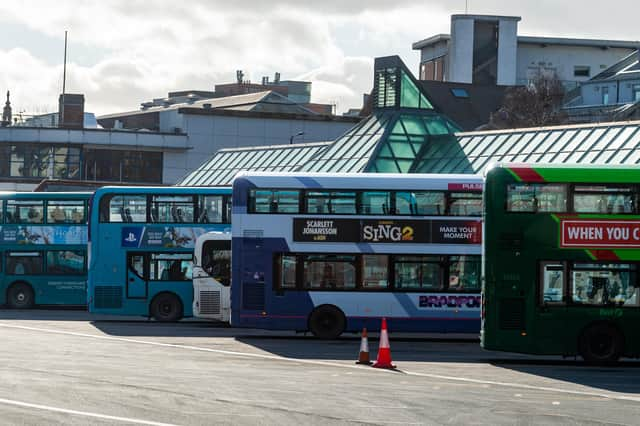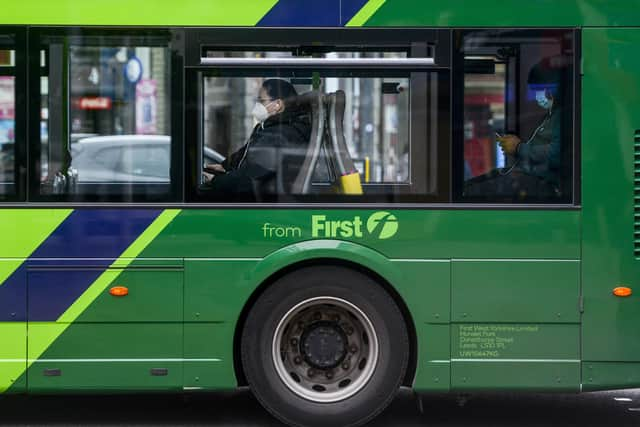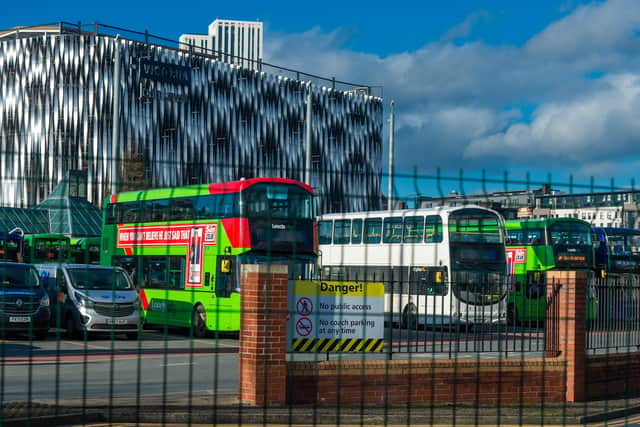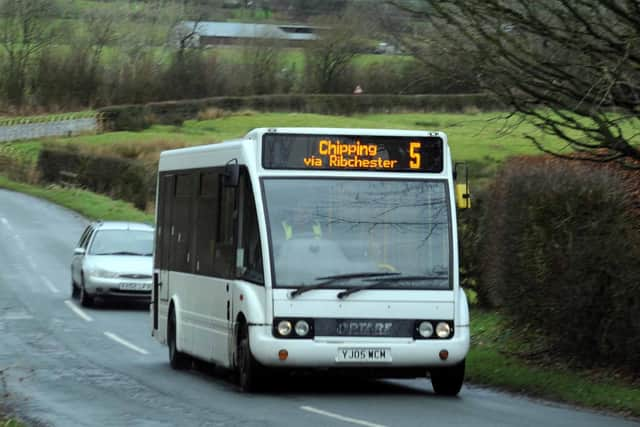Yorkshire’s bus crisis: Act now to prevent this collapse of key services – Andrew Vine


What happens instead is that you wait ages for a bus, and then none turn up, with the display above the stop saying that the next service due in 15 minutes’ time has been cancelled.
Many a long-suffering bus passenger in our region will be familiar with this, and of arriving at work to start the day with profuse apologies to bosses and colleagues for being late as a result.
Advertisement
Hide AdAdvertisement
Hide AdLet’s face it, many of our bus services are a mess, either unreliable or too thinly spread, especially outside towns and cities. This is not entirely the fault of the bus companies, especially over the past two years with the Covid pandemic.


But the way we run buses, with responsibility for providing a vital service falling to private enterprise, isn’t working as well as it should, hence a concerted effort by elected mayors to bring services back under public control.
And matters could be about to become very much worse, with the real risk of a collapse in parts of our transport network. Councils, bus operators and public transport groups warned yesterday that services could be cut by nearly a third within weeks when emergency Government funding to get them through the loss of passengers because of the pandemic runs out.
They echoed concerns expressed earlier this month by South Yorkshire Mayor Dan Jarvis, and the leaders of the four councils on his patch, who wrote to the Government to say a cut in funding would undermine efforts to get passengers back on buses as workers return to offices.
Advertisement
Hide AdAdvertisement
Hide AdThat is already an uphill task. Passenger numbers are 23 per cent lower than before the pandemic, and an increasing trend towards working from home for at least part of the week could mean the reduction is permanent.


This is a looming crisis that is receiving far too little attention. Routes are at risk of becoming unviable unless financial support continues, but this represents much more than a problem for bus companies in balancing their books.
It will mean vulnerable and elderly people stranded, people struggling to get to work or medical appointments and yet more of the life squeezed out of rural communities already ill-served by public transport.
The Government must not allow this to happen, especially here in the north where years of underfunding of public transport has already left us with much poorer services than more affluent parts of the country.
Advertisement
Hide AdAdvertisement
Hide AdFar from buses being allowed to die because the balance-sheets of operators don’t add up, there needs to be a wholesale rethink of how they are provided.


At its heart should be the core notion of them being an essential public service that must be maintained at all costs. Their value to communities is incalculable. The dwindling of rural services – which are bound to be under even greater threat when emergency support ends – is one of the most damaging elements of the spiral of decline many towns and villages in the countryside have suffered as they struggle to attract new investment and create jobs, especially for the young.
At a time when the country is committed to reducing emissions, cutting services that get cars off the road is madness.
We need more buses, not fewer. Fast, frequent, reliable and affordable services are the only way to get commuters to leave their cars at home.
Advertisement
Hide AdAdvertisement
Hide AdMinisters should realise that there is a public out there which is ready to be persuaded onto buses, not least because of the spiralling cost of filling their cars and the ruinously high parking charges in many city centres, and have the foresight to tap into it.
The Government has made much of its pledge to invest £3bn in bus services nationally, but when spread across the entire country, it does not amount to nearly enough.
It won’t filter down to villages in the Dales, or the remoter parts of East Yorkshire which are lucky to see two buses a day. It isn’t even making it into one of our biggest cities, Sheffield, where a friend has been put out to find that the service he uses to get into the city centre has been halved in frequency.
The bus is a convenience for him, but for others it might well be a lifeline. That’s too important to neglect. Support for buses introduced during the pandemic needs to continue for months longer, giving passenger numbers the chance to recover.
Advertisement
Hide AdAdvertisement
Hide AdAnd in the longer term, the bus network needs to be developed, not allowed to decline. Failing to invest in it is a false economy by the Government that harms both communities and the environment.
Support The Yorkshire Post and become a subscriber today. Your subscription will help us to continue to bring quality news to the people of Yorkshire. In return, you’ll see fewer ads on site, get free access to our app, receive exclusive members-only offers and access to all premium content and columns. Click here to subscribe.
Comment Guidelines
National World encourages reader discussion on our stories. User feedback, insights and back-and-forth exchanges add a rich layer of context to reporting. Please review our Community Guidelines before commenting.